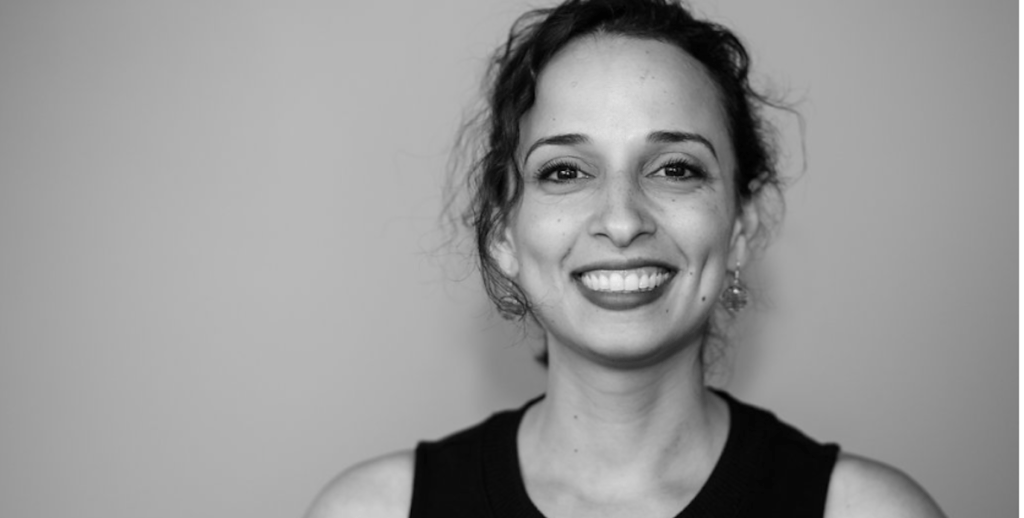![]()
Mission-driven.
Women-centered.
Are any buzz words more hackneyed when it comes to talking about businesses today? Possibly not.
But Philly-based Yasmine Mustafa is recapturing the soul of all of those concepts with her latest business venture, the AlwaysOn employee safety platform for hotel housekeeping workers, from her company, ROAR for Good.
If you’re having a deja vu moment, that could be because Mustafa is the same woman who made headlines in 2015 for Athena, a wearable safety alert device marketed to women. The product, and Mustafa, rightfully got a lot of buzz at the time, given Mustafa’s extraordinary personal journey—Kuwaiti refugee and undocumented citizen becomes do-good startup whiz!—as well as the intrigue, and a successful crowdfunding campaign that raised nearly $300,000 in 30 days, behind her debut product.
There was a charitable component too: A portion of proceeds from Athena sales would go to nonprofits focused on teaching respect, consent and healthy relationships to young people. It all sounded dreamy.
“There are people who think that you can’t be for-profit and have a social impact as well—they’re worried about how you prioritize,” Mustafa says. “But we don’t want to be a nonprofit. We don’t want to rely on donations.”
Then Mustafa, like countless business leaders before her, hit a wall. Manufacturing costs prevented her company from being able to sell Athena as affordably as she’d planned, to be able to reach low-income women in the U.S. and in countries like India, South Africa, and Mexico, where demand was particularly high. She took time to explore cost-effective manufacturing alternatives; meanwhile, competitors hit the market.
She stepped back to recalibrate. That’s when an interesting development occurred in the hospitality industry: A report came out saying that 58 percent of hotel housekeepers experience sexual harassment on the job, and that those workers tended to be women of color and immigrants, 70 percent of whom speak English as their second language.
![]()
Legislation in New York City and Chicago came out to address the issue, requiring employers to provide their staff with panic buttons. Policies began to percolate in other cities. And in September 2018, the American Hotel and Lodging Association (AHLA) introduced its 5-star promise, which the organization describes as “a voluntary commitment by AHLA members to enhance policies, trainings, and resources, including employee safety devices, that together are aimed and strengthening safety and security for hotel employees and guests.”
With 56,000 hotels in the U.S. directly employing 2.3 million people (and indirectly employing another 5 million), the news was heartening for Mustafa on a personal and business level.
“We had won awards for our panic button—it was one of the leading products in the market. So as difficult as it was to make the decision to go from B-to-C [business to consumer] to B-to-B [business to business], we realized that doing so would allow us to have a bigger impact,” Mustafa says.
The company could shift the financial burden of the device from the consumer—the low-income women who need it most—to their employer. In so doing, Mustafa landed on a business model that she felt good about, and that could be truly sustainable.
The company is repurposing inventory from Athena—for now, until it runs out and they switch manufacturing channels—into magnetized wearable safety devices that housekeeping staffers can attach to their uniform. The device is guaranteed to work, with complete dead-spot coverage and a two-week battery life. All workers are trained on using it, and receive materials in their preferred language.
The device does not track workers—which is a common fear among hotel employees, who worry that they’ll be penalized for their speed or time spent taking breaks—but as soon as the device is pressed, it activates an alert that lets hotel security know exactly where the housekeeper is.
58 percent of hotel housekeepers experience sexual harassment on the job, and those workers tended to be women of color and immigrants, 70 percent of whom speak English as their second language.
Among ROAR’s early clients are Marriott Vacations and the Westin Bonaventure in Los Angeles. With 56 hotel companies in the U.S. having signed on to voluntarily come into compliance with AHLA’s 5-Star promise by the end of 2020, the demand for ROAR’s product is outpacing supply, a problem Mustafa is grateful to have, and for which she’s seeking another round of $1 to $2 million in investment, to fuel growth.
Jennifer Myers, AHLA’s Senior Director of Government Affairs Communications, says that there are ancillary wellness benefits to emergency alert devices beyond employee safety. In the event of a health emergency, for example, an employee could summon help faster and more easily.
As business booms at the Spring Garden headquarters of ROAR for Good, where Mustafa expects to grow her full-time staff from about 20 to twice that by year’s end, Mustafa reflects on her personal and professional journey.
“When I think back to what helped me push through, it was focusing on what I could control,” Mustafa says. “There were so many things that were out of my control: I couldn’t control the fact that I couldn’t get a license to get a car, or make minimum wage, or pay for things. I couldn’t control that I had to eat pasta for 10 years of my life. But the things I did have power over were making sure that I got an education, that I pushed through really bad times by looking at where I ultimately wanted to go, and what I wanted to do when I got there.”
And now, here she is.

